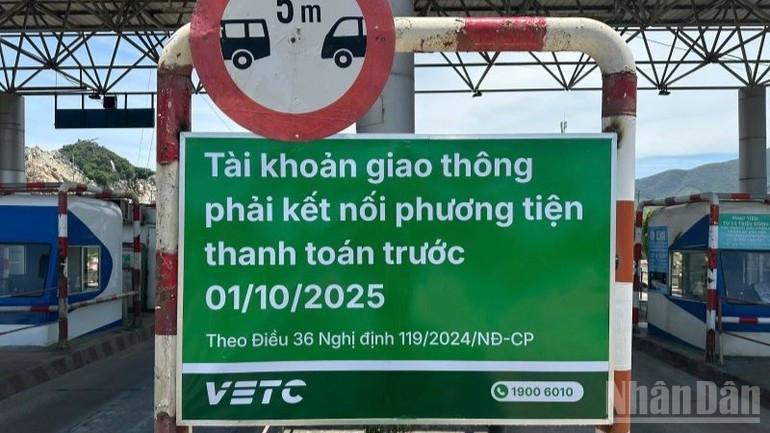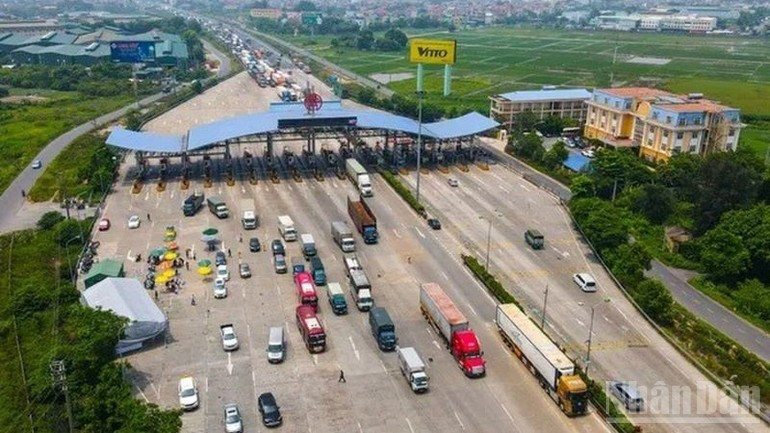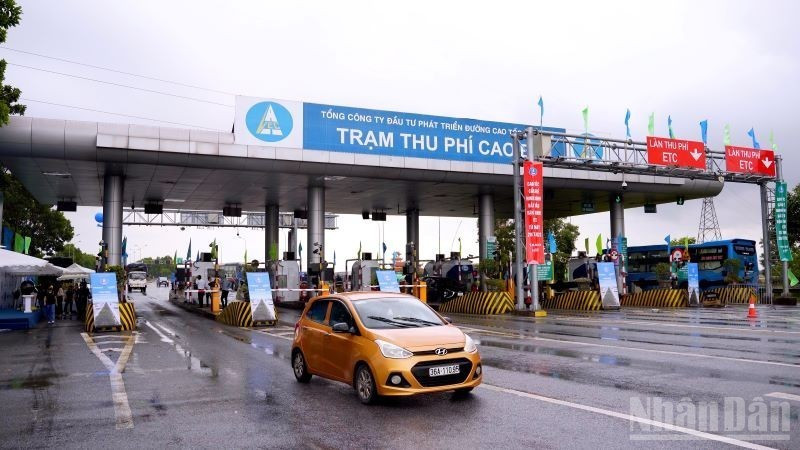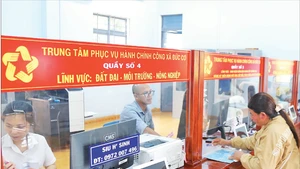However, some members of the public remain hesitant, believing this requirement originates from service providers. Clarifying the legal basis and the role of stakeholders in this policy is therefore crucial.
From policy to practice
Within the national drive for digital transformation under the guidance of the Party and the State, traffic account identification is not merely a technical requirement but a fundamental legal step. It ensures security and safety in electronic transactions, protects the legitimate rights of citizens and businesses, and builds a synchronised infrastructure for the digital economy.
This regulation creates a secure legal corridor, guarantees the transparency of financial flows, shields citizens from financial risks, and grants them full control over their assets within the digital traffic ecosystem.

By October 1, 2025, car owners must convert their current toll accounts into traffic accounts linked to cashless payment methods. Failure to do so will prevent vehicles from passing toll stations.
First and foremost, the requirement to identify traffic accounts is a mandatory regulation reflecting the State’s role in governance. It is not a “commercial ploy” by any enterprise. In a socialist-oriented market economy, the State plays the role of institution-builder, policymaker and regulator, creating an environment for healthy development.
Service providers such as VETC and ePass are obliged to comply with and rigorously implement legal regulations. Their current efforts to guide citizens through the account identification process are an exercise of their legal and social responsibility.

The identification of accounts that generate financial flows is not unique to this sector but a principle of modern financial management, applied widely and consistently across vital industries worldwide.
A “Shield” for citizens
From the citizen’s perspective, account identification is not only an obligation but also a vital right. In a law-governed society, legal identity is the strongest “shield” to protect individual rights and interests. A traffic account that has been identified is a legally recognised and protected asset. Should any incident or dispute arise, from erroneous deductions to more complex risks, authorities and stakeholders have a clear legal basis to intervene and ensure rightful protection for the account holder.
Conversely, an anonymous account places users at a disadvantage, making it difficult to prove ownership or request legal protection. As traffic accounts serve as specialised e-wallets for storage and payment of services, bringing them under the same identification framework as other financial accounts is logical. It reflects consistency in state governance and contributes to a safe, trustworthy digital transaction environment for the entire economy.
To Nam Toan, Directorate for Roads of Viet Nam

Explaining the rationale for account conversion, To Nam Toan, Head of the Department of Science, Technology, Environment and International Cooperation (Directorate for Roads of Viet Nam), noted that current toll accounts hold details on vehicles, their owners, and pre-paid funds used to pay tolls when passing stations.
As dedicated accounts, such funds can only be used for toll payments, not for other purposes, and they accrue no interest. Their connection with cashless payment instruments remains limited and inconvenient, particularly for businesses operating large fleets that must deposit substantial sums into toll accounts.
“Therefore, in drafting Decree 119, the Ministry of Transport (at the time) and the State Bank of Viet Nam agreed on a management approach: separating toll accounts into traffic accounts linked to cashless payment instruments such as e-wallets, bank accounts or credit cards. Vehicle owners can choose their preferred payment instrument to connect to their traffic account. Once implemented, this will make toll management more transparent, while making payments simpler for citizens and promoting cashless transactions in line with Government policy,” Toan explained.
The legal requirement in Decree 119 clearly states that vehicle owners must provide accurate information, while service providers must verify and authenticate this against the national population database. This is not merely an encouragement but a binding condition for participation in the system. It establishes a strong legal “fence”, ensuring that every financial flow within the ETC system has a clear, lawful and traceable origin.

Traffic account identification is therefore a sound policy, stemming from the State’s management mandate and directed towards the highest goal of protecting citizens’ interests. It is not a mere administrative procedure, but an essential component of building a digital government, digital economy and digital society. By actively complying with this regulation, every citizen not only fulfils their civic duty but also contributes directly to the collective mission of constructing a strong, secure and transparent national digital infrastructure—for a prosperous and resilient Viet Nam.
















